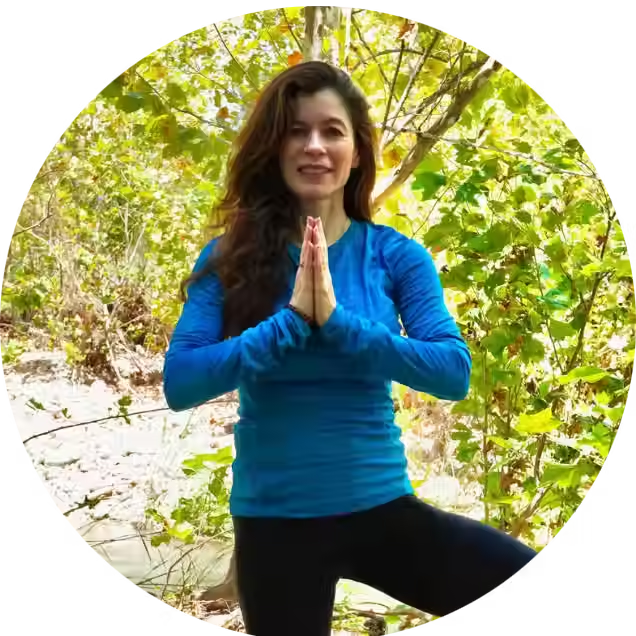Patience: A Mindful Response to Things Gone Wrong
- Lane Igoudin
- Nov 10, 2020
- 4 min read

This fall, I suffered a couple of personal setbacks. A creative project I’ve been working on for several years got derailed. And at home, one of my teenage kids ran into a rough patch, which made me feel that I was failing as a parent.
A wave of despair rose up inside of me. Years of effort and dedication delivered me to a pointless end, like a train going off the rails when the tracks suddenly end in the middle of nowhere.
I stayed in that place, sinking into a quicksand of sadness and depression. How could I transcend it, pull myself out of this wreckage?
I reminded myself of all the blessings I’ve been given - a loving partner, kids who still give me so much joy, a stable job amidst the pandemic, good health, baruch ha-Shem. But those words spoke to reason, not to the heart. The heart stayed in the darkness.
That wasn’t the way. Not for me, at least. Then in meditation, I let myself loose, allowing myself to feel exactly what I was feeling - sad, disappointed, desperate. It was there - sadness, and all that came with it - undeniably there. Recognizing it, not pushing it away, helped me to begin to detach. The sadness was there, but it wasn’t all of me, it didn’t hold all of me.
Reading a new book by the Zen teacher Tenshin Reb Anderson on the six paramita practices, methods to train to awaken oneself, something caught my eye. These practices, which literally mean ‘going beyond’, could be interpreted as going beyond suffering, something I felt acutely, but also transcending our ideas of ourselves. Practicing paramitas, the book suggested, could liberate one from the maze of ignorance and misery to a place of serenity, and initiate the right action in response. One mindful practice that spoke to me was kshanthi paramita, the perfection of patience.
Patience, as Tenshin Anderson explains, “is not attempting to control our experience, . . . [by] trying to get away from physical and emotional discomfort. It is the ability to sit calmly in the center of all suffering.” Patience allows us to respond to a difficult situation in a kind, flexible, and skillful way. It is not an invitation to sit passively and do nothing.
So what if my project hit a brick wall? Maybe I should approach it from a fresh angle, redo it in a way that will get through the wall, or around the wall?
So what if a child makes a mistake, detrimental as it might be at the moment? Long-term, making mistakes is often the best way to learn. And I’ll still need to be there to help them find their own way to resolve the issue.
Both situations will require patience and time to work through.
In Mussar, a practical Jewish tradition for living a meaningful, ethical life, patience is a pathway to holiness. Patience is something the Creator endows all of us with at birth as part of our soul, as one of its middot, or traits.
Some people are born with a good measure of patience. Me? Not so much. Plunging into sadness over my setbacks sent me a signal that this could be an opportunity to cultivate it, to repair this soul trait, ‘tikkun ha-middah ha-nefesh’.
G-d is patient with human beings, explain Mussar teachers, keeping us alive even when we transgress. Emulating G-d’s ways sets an ethical example for us to follow. “From this, man should learn to what extent he too should be patient and bear the yoke of his fellow,” wrote Rabbi Moshe Cordovero in the 16th century. And should we go astray, there is always t’shuvah, a chance to return to the righteous path.
Bearing the yoke, interestingly, is encoded in the Hebrew word for patience, savlanut. Alan Morinis, a contemporary Mussar master, points out that patience, savlanut, shares the Hebrew root with the cognate for a porter who carries goods, saval. Expecting suffering, and learning to endure and tolerate it is central to being patient.
Cultivating patience, Morinis asserts, is also inseparable from cultivating humility. These recent setbacks reminded me of that as well. My disappointment with things not working out the way I wanted stemmed from the delusion of being entirely in control of everything that I do, an omnipotent master of my own universe. The reality, however, is that we are all interdependent. Everyone’s personalities, goals, and agendas factor into what happens, and what doesn’t. Recognizing our limitations in controlling the outcome, we can “see ourselves situated amid the large wheels turning and rivers flowing, moved by hands that are not our own” (Morinis, 61).
Maybe the most important spiritual lesson I am taking away from my recent ‘train wreck’ is this: patience can offer relief from disappointment and despair. It offers a simple recipe: accept a setback, rather than resist it, and then pick up the load and start walking. It's simple, and it's holy.
References
Tenshin Reb Anderson, Entering the Mind of the Buddha: Zen and the Six Heroic Practices of the Bodhisattvas, Shambhala Publications, 2019.
Rabbi Moshe Cordovero, The Palm Tree of Deborah (Tomer Devorah). Southfield, MI: Targum/Feldheim, 1993, written in Tzfat circa 1546-1570, and first published in Venice in 1588.
Alan Morinis, Everyday Holiness: The Jewish Spiritual Path of Mussar. Boston and London: Trumpeter, 2007.
______________________________________________________________________________
Lane Igoudin, M.A., Ph.D., blogs for Applied Jewish Spirituality and produces Blessing the Sea, a monthly newsletter on Jewish mindfulness. He is a member of Temple Beth Shalom, a Conservative synagogue in Long Beach, California, and of Zen Center of Los Angeles. For more information, please visit www.laneigoudin.com.



